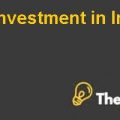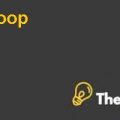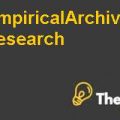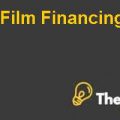
Positive accounting theory is a behaviorist approach to accounting which can’t be relied upon to a greater extent. It says that behavior is observational and justifies its claim by saying that in extreme regulatory conditions; if the firm does some juggle waggle in its operations then the manager tries to manipulate the books by shifting the income to current years from the income that is supposed to be generated in the future periods. Further, the positive accounting theory’s hypothesis that is being tested on the earnings management is completely institutional based and that does not apply to all cultures in any way. This is a major drawback of positive accounting theory, which hinders its implication on a universal level.
However, even with all these disadvantages of using positive accounting theory, it can be seen that it has its advantages of giving crucial importance to the industry numbers and quantifying the results in accordance to the market; that reflects the true welfare of the shareholders in the near future. Moreover, the capital based approach used by the positive accounting theory is consistent with what the stock market apt to be. Assessment of the fair value that has been calculated over different possible situations; with an affirmation that they may be encountered in future given the economic circumstances is something very useful that positive accounting theory helps accountants to formulate. Although it provides information to such an extent; still it is not seen to dominate the accounting practices.
Next comes the normative theory, which is a theory based on a set of guiding principles. It is completely opposite of the positive accounting theory and asserts that objectives need to be deduced as well as one needs to generate the hypothesis and develop principles from them. Once it is done, then the stage of testing the waters arrives. This includes the testing of whether the set goals as well as objectives are up to the mark and can sustain in the given situation or not. Normative theory is something that is required when the authority needs to be exercised on the accountants and when the regulatory authority needs to bring the doings of the accountants in compliance. This is used when a similar set of objectives and procedures are needed to be followed by everyone in order to eliminate any discrepancies resulting from the use of different accounting procedures.
In the world of Accounting, the supporters of normative theory argue that the historical methods of accounting, purely based on price must be eliminated as they have become obsolete and don’t cater the demands of time. Further they argue that accounting principles must be one that lives up to the demand of every asset individually. For example, they said that renewable assets should be priced mark-to-market. If the resources are not renewable then the asset should be priced on the basis of renewable cost or fair value and all the profits and losses must be kept intact without even a minor deviation or manipulation, whether realized or unrealized. Further, the use of normative approach helps accountants better allocate and be as much as objective and transparent in their analysis as they can be. With maximum transparency provided by the normative theory, this theory is widely held and accepted. It focuses on calculating the true value of the income that can be generated in the present with the current assets and holdings of the firm. Moreover, it is purely based on the view that valuation must be done on the current or original prices which reflects the true worth of the company at the moment.
However, Normative Theory of Accounting also faces criticisms as it focuses primarily on the current scenarios rather than on the future prospects. This short coming is the major drawback of normative theory. Further, due to its inability to incorporate future case scenarios and to provide a comparative study of the current with the future prices, majority of accountants hesitate in adopting this approach.
The third theory of Accounting is the agency theory, as stated earlier the agency theory is one which assumes that the two parties have a relationship of dependency in which one party that is the manager (principal in accounting terminology) is completely dependent on the other party who is the agent (manager). This is because of the lack of crucial information on the part of the manager who seeks the expertise of the agent in managing the tasks and pursuing single-mindedly profits. Besides, this relationship is not limited to the manager and the agent; rather it extends to every shareholder, the supplier, the creditor and therefore it can be said that this theory is dependent in nature..................................
This is just a sample partial case solution. Please place the order on the website to order your own originally done case solution.













